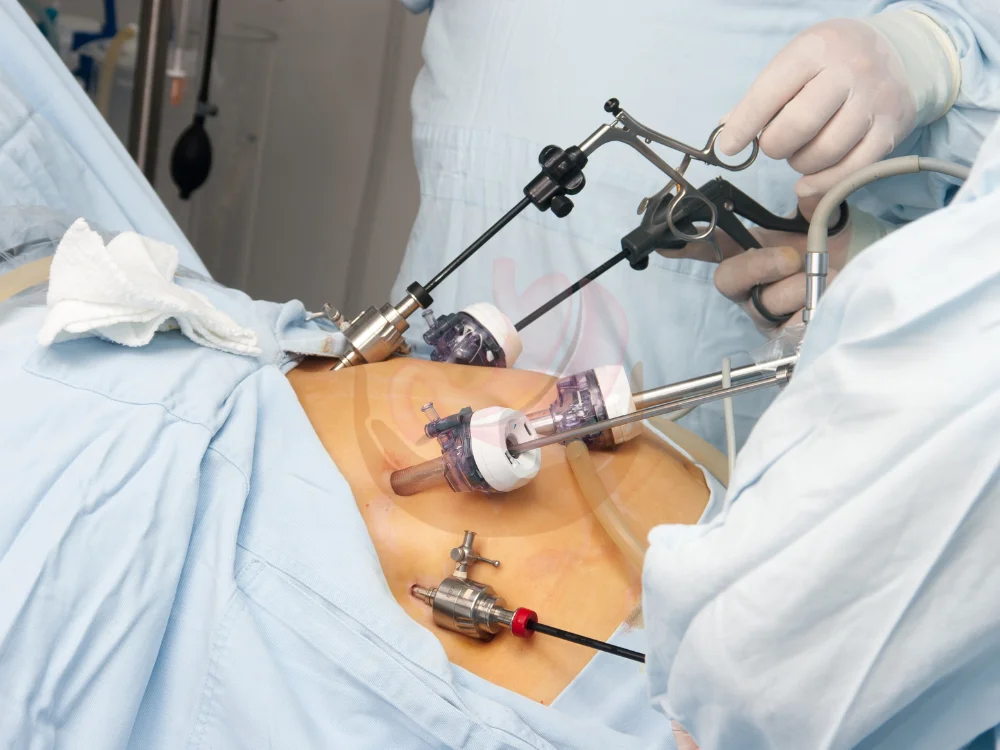Lap sleeve gastrectomy, often referred to as laparoscopic sleeve gastrectomy, is a popular bariatric surgery designed to aid in significant weight loss. This minimally invasive procedure involves the surgical removal of a portion of the stomach, creating a sleeve-like structure. As a result, the stomach’s capacity to hold food decreases, helping individuals manage their portion sizes and caloric intake effectively.
In this article, we’ll explore the crucial benefits, the recovery process, potential risks, and considerations associated with lap sleeve gastrectomy to help you make an informed decision.
What is Lap Sleeve Gastrectomy?
Lap sleeve gastrectomy is a surgical procedure that reduces the stomach size by approximately 75-80%, leaving a banana-shaped “sleeve.” Unlike gastric bypass, this surgery doesn’t involve rerouting the intestines or altering nutrient absorption, making it a simpler, less invasive option for many individuals struggling with obesity.

7 Key Benefits of Lap Sleeve Gastrectomy
1. Significant Weight Loss Results
One of the most compelling reasons patients opt for lap sleeve gastrectomy is its effectiveness in promoting weight loss. Most patients can expect to lose 50-70% of their excess body weight within the first year. The reduced stomach size restricts food intake, helping patients adapt to smaller, healthier meal portions.
2. Improved Metabolic Health
The weight loss achieved through lap sleeve gastrectomy can lead to improved metabolic health. This includes the resolution or significant improvement of obesity-related conditions such as type 2 diabetes, hypertension, and sleep apnea. Many patients experience better blood sugar control and reduced dependency on medications post-surgery.
3. Minimal Invasiveness and Short Recovery Time
Being a laparoscopic procedure, lap sleeve gastrectomy involves small incisions that reduce scarring and speed up the recovery process. Most patients can expect to return to light activities within 2-3 weeks and resume normal routines by 4-6 weeks, depending on their unique recovery pace.
4. Lower Risk of Nutrient Deficiency
Compared to other bariatric surgeries like gastric bypass, lap sleeve gastrectomy has a lower risk of long-term nutrient deficiencies. While patients must adhere to a balanced diet and may need supplements, the risk of significant malabsorption is minimized because the intestines are left unaltered.
5. Reduced Hunger Hormone Production
A lesser-known advantage of lap sleeve gastrectomy is its effect on ghrelin, the hunger hormone. By removing the part of the stomach responsible for producing ghrelin, many patients experience decreased hunger, making it easier to adhere to dietary changes post-surgery.
6. No Foreign Implants
Unlike gastric banding, lap sleeve gastrectomy does not involve placing any foreign devices in the body. This reduces the risk of complications such as band slippage or erosion and eliminates the need for future adjustments or replacements.
7. Sustainable Lifestyle Change
Lap sleeve gastrectomy isn’t just about rapid weight loss—it encourages long-term lifestyle changes. Patients often find that the smaller stomach size necessitates mindful eating habits and portion control, laying the foundation for sustained health benefits.

Understanding the Risks and Considerations
While lap sleeve gastrectomy has many benefits, it’s essential to understand the potential risks and considerations before proceeding.
Surgical Risks
All surgeries carry inherent risks. Common complications can include infection, bleeding, and adverse reactions to anesthesia. However, these risks are minimized when the procedure is performed by an experienced bariatric surgeon.
Gastroesophageal Reflux Disease (GERD)
Some patients may develop or experience worsened GERD after surgery. It’s crucial to discuss any pre-existing reflux issues with your doctor before considering lap sleeve gastrectomy.
Weight Regain Potential
While most patients achieve significant weight loss, maintaining that weight loss requires dedication to lifestyle changes, including a healthy diet and regular exercise. Without these, there is a risk of regaining weight over time.
The Recovery Process: What to Expect
After a lap sleeve gastrectomy, patients typically spend 1-2 days in the hospital for observation. The recovery process involves:
- Initial Post-Operative Phase: The first week after surgery focuses on liquid intake to prevent dehydration and allow the stomach to heal.
- Transition to Soft Foods: Around week 2-3, patients begin to incorporate pureed and soft foods. This gradual transition helps the stomach adapt.
- Return to Regular Diet: By 6-8 weeks, most patients can start eating regular, healthy foods, though in much smaller quantities than before surgery.
Patients are advised to follow their surgeon’s guidelines closely to minimize complications and optimize recovery.
Long-Term Outcomes and Lifestyle Adjustments
Lap sleeve gastrectomy is only one part of a long-term weight management solution. Post-surgery, individuals must embrace a lifestyle centered around balanced nutrition, portion control, and physical activity. Consistent follow-ups with healthcare providers are also crucial to monitor progress and manage any nutritional deficiencies.

FAQs about Lap Sleeve Gastrectomy
1. How long does a lap sleeve gastrectomy procedure take?
The surgery typically takes 1-2 hours, depending on the patient’s specific situation and the surgeon’s expertise.
2. Is lap sleeve gastrectomy reversible?
No, lap sleeve gastrectomy is not reversible as it involves the permanent removal of a portion of the stomach.
3. Can anyone undergo lap sleeve gastrectomy?
Candidates usually have a BMI of 40 or above or a BMI of 35 or higher with related health issues like diabetes or hypertension. A thorough evaluation by a bariatric surgeon is necessary to determine eligibility.
4. What is the average weight loss after lap sleeve gastrectomy?
Most patients lose about 50-70% of their excess body weight within the first 12-18 months after surgery.
5. Will I need to take supplements after the procedure?
Yes, while the risk of severe nutrient deficiency is lower than with other surgeries, a multivitamin, calcium, and possibly other supplements are recommended to ensure nutritional health.
6. How soon can I return to work after the surgery?
Most people can return to non-strenuous work within 2-3 weeks post-surgery, but this may vary depending on individual recovery.
Conclusion
Laparoscopic sleeve gastrectomy is a proven surgical intervention that offers significant benefits for individuals struggling with obesity and related health conditions. By restricting stomach capacity and altering hormonal signals, this procedure can lead to substantial and long-lasting weight loss.
However, it’s important to note that surgery is not a magic solution. To maximize its effectiveness, patients must commit to a comprehensive lifestyle transformation. This includes adopting a balanced diet, engaging in regular physical activity, and seeking ongoing support from healthcare professionals. By combining surgical intervention with healthy habits, individuals can achieve and maintain a healthier weight, reduce the risk of chronic diseases, and improve their overall quality of life.


